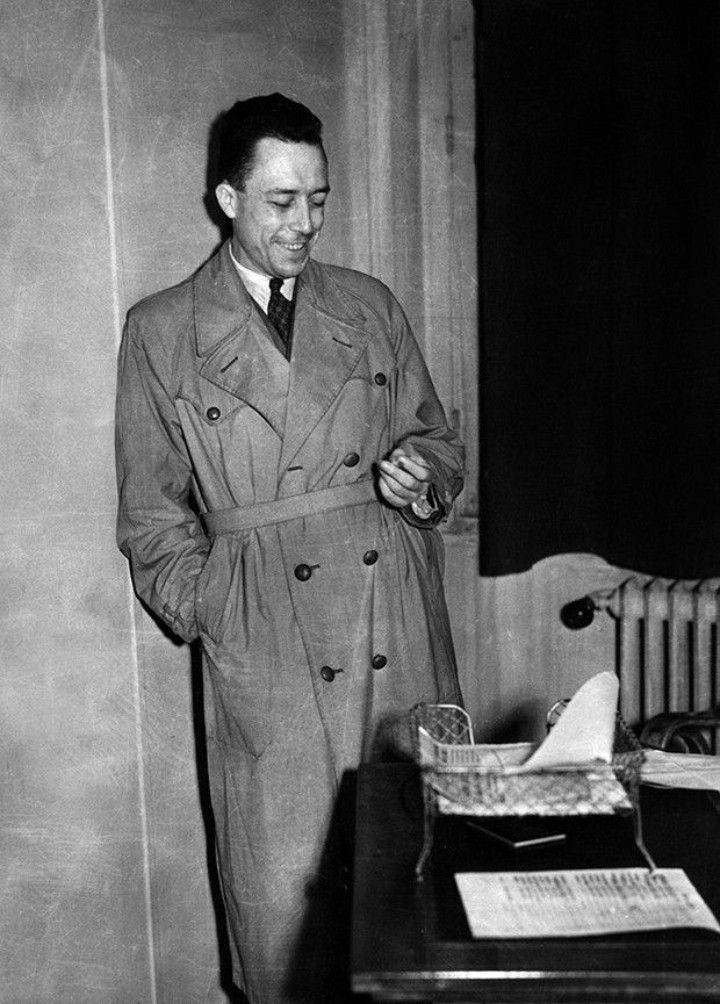A Letter of Gratitude: Albert Camus and the Teacher Who Changed His Life
Gratitude is more than a fleeting sentiment—it is a profound acknowledgment of the kindness, support, and guidance we receive throughout our lives. It fosters humility, strengthens relationships, and brings a deep sense of fulfillment. When we take the time to express gratitude, we not only uplift others but also develop a deeper appreciation for the people and experiences that shape us.
One of the most remarkable examples of gratitude comes from the life of Albert Camus (1913–1960), the French-Algerian philosopher, writer, and Nobel laureate. Camus, known for works like The Stranger and The Myth of Sisyphus, explored themes of existentialism and absurdism. Despite his intellectual depth and literary success, he never forgot the man who had a profound impact on his early life—his schoolteacher, Louis Germain.
A Teacher’s Quiet Influence
Camus was born into poverty. His father died in World War I, and his mother, who was partially deaf and worked as a cleaner, struggled to support the family which included his older brother and a despotic grandmother, a situation that offered no future prospects. In a world that seemed indifferent to his hardships, one person made a difference—Louis Germain, his primary school teacher.
Germain saw potential in young Camus when few others did. He encouraged him to pursue education, nurtured his love for literature, and helped him secure a scholarship that allowed him to continue his studies. Without this teacher’s quiet dedication, the world might never have known the brilliance of Albert Camus.
A Letter of Gratitude
In 1957, when Camus was awarded the Nobel Prize in Literature for his clear sighted earnestness of his work which illuminated the problems of human conscience, he did something extraordinary. While basking in the glory of his achievement, he wrote a heartfelt letter to Louis Germain, thanking him for his unwavering belief in a young boy from a struggling household.
19 November 1957
Dear Monsieur Germain,
I let the commotion around me these days subside a bit before speaking to you from the bottom of my heart. I have just been given far too great an honor, one I neither sought nor solicited. But when I heard the news, my first thought, after my mother, was of you. Without you, without the affectionate hand you extended to the small poor child that I was, without your teaching and example, none of all this would have happened. I don’t make too much of this sort of honor. But at least it gives me the opportunity to tell you what you have been and still are for me, and to assure you that your efforts, your work, and the generous heart you put into it still live in one of your little schoolboys who, despite the years, has never stopped being your grateful pupil. I embrace you with all my heart.
Albert Camus
His words were a testament to the immense impact a teacher can have on a student’s life. Camus, despite reaching the pinnacle of literary success, never forgot the man who set him on the path of learning.
The Power of Gratitude
Camus’s letter reminds us that gratitude is not just about remembering those who have helped us—it’s about letting them know that their kindness mattered. In our own lives, we often achieve milestones, overcome struggles, and grow into the people we are because of the support of others—be it a teacher, mentor, friend, or family member.
Yet, how often do we pause to express our gratitude? How often do we reach out to those who shaped us and say, “You made a difference in my life”?
Albert Camus did. And in doing so, he gave the world a beautiful lesson: No success is truly ours alone. Behind every achievement, there is someone who believed in us when we doubted ourselves.
Perhaps today is a good day to write our own letter of gratitude.

